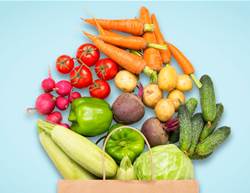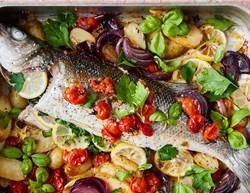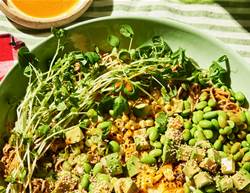They arrive unexpectedly and with the subtlety of a hammer. You catch a glimpse of cheesy pizza or the smell of freshly baked biscuits wafts by and soon you can think of nothing other than indulging in that food.
Experts believe a complicated web of stimuli, memories, cultural influences and hormones causes us to crave certain flavours and textures. But genetics also plays a role: a new Danish study found that people with one of two variants of a certain gene are more likely to have a sweet tooth than those without the variant. But there’s no consensus on how important each factor is.
One thing we do know about why certain foods are commonly desired: when the brain detects sugar, protein or fat, it releases reward signals.
“There are evolutionary reasons these macronutrients are all craved, because they’re things humans need,” says Marcia Pelchat, a researcher at the Monell Chemical Senses Centre.
“Early humans did well to eat them because their diet would be deficient in kilojoules otherwise.” There were also fewer sources of empty kilojoules, so these cravings encouraged our ancestors to eat natural sugars, lean protein and healthy fats, found in foods such as berries, fish and avocado.
"Today, cravings lead us to chocolate, burgers and fries. But they don’t have to. If you struggle with cravings, these expert-approved tips can help you feel satisfied with healthier choices.
Sugar
WHAT YOU WANT: Cake, biscuits, chocolate.
WHY YOU CRAVE IT: Because sugar is a quickly digested carbohydrate, it provides a fast burst of energy and feel-good reward signals when you eat it – one reason you crave it when you’re tired or stressed. But certain added sugars, such as table sugar, can inhibit the circulation of satiety hormones – meaning you’ll want to keep eating after your first fix. “If you eat more natural sources of sugar, most of your sweet cravings will likely go away,” says dietitian Elisabetta Politi.
HAVE THIS INSTEAD: Plain Greek yoghurt with berries or unsweetened cacao nibs.
Protein
WHAT YOU WANT: Bacon, cheeseburgers, steak.
WHY YOU CRAVE IT: Meats have a flavour referred to as umami (a Japanese word often translated as ‘savoury’), which signals the presence of amino acids that make up protein. Your tastebuds have amino acid receptors that cue reward signals when you eat foods rich in umami, which is why a sizzling steak might seem appetising. Lean sources of protein quell this desire with fewer kilojoules.
HAVE THIS INSTEAD: Chicken breast, a hard-boiled egg, quinoa cooked in beef stock.
Fat
WHAT YOU WANT: Chips, pizza, potato crisps.
WHY YOU CRAVE IT: Fat serves as back-up fuel when carbs aren’t available, and it helps the body absorb nutrients. As with sugar, you may crave it as a booster when you’re feeling stressed. “High-fat foods are very rewarding because they cause a release of dopamine [the brain chemical that plays a role in reward-motivated behaviour],” says Daniel Ragland, a professor of psychiatry and behavioural sciences. You can satisfy the craving with healthy fats that can benefit your brain and heart.
HAVE THIS INSTEAD: A handful of nuts, peanut butter or avocado on grainy crackers.










